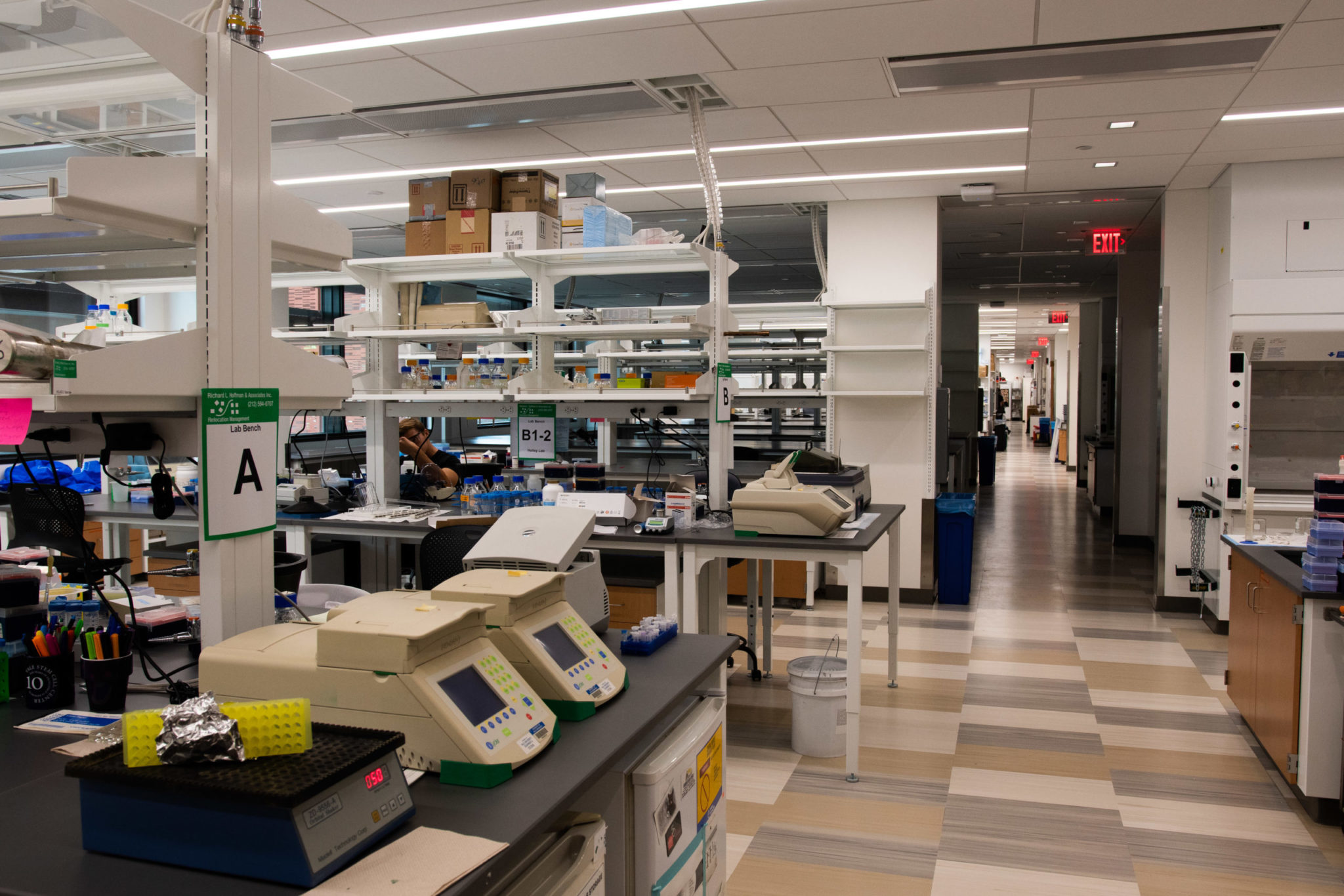
Lukas Flippo
The Yale Chemical and Biophysical Instrumentation Center, or CBIC, is investigating a treatment for acute respiratory distress syndrome, one of the symptoms caused by the novel coronavirus.
The CBIC, which is led by Dr. Eric Paulson GRD ’04, provides a collection of analytical instruments which are too expensive or specialized for research groups across the University to procure. The project to develop a cure for acute respiratory distress syndrome, or ARDS, is a joint partnership between the CBIC and New England Discovery Partners, a contract research organization specializing in drug discovery. The team seeks to develop a potential anti-inflammatory agent to mitigate the symptoms of coronavirus-associated ARDS.
“The active ingredient is a very challenging, light-sensitive molecule,” said Dr. Michael Van Zandt, the CEO of New England Discovery Partners. “We needed to make significantly more [of it].”
The researchers at New England Discovery Partners have already synthesized the treatment on a 10-gram scale, but if they are to commercialize the treatment, they must scale up production. The organization is currently investigating different techniques to increase the amount of the drug being synthesized.
The CBIC — which has partnered with New England Discovery Partners since its inception — is providing access to a nuclear magnetic resonance spectroscopy machine, which the team of chemists will use to verify if their attempts to increase the yield of the molecule are working.
As the coronavirus continues to batter the country, the CBIC has taken precautions in accordance with the social distancing and health guidelines for Connecticut. Dr. Brandon Mercado, a specialist in X-ray crystallography at the CBIC, said that the CBIC has been cross-training faculty in the wake of the pandemic.
“Since we have implemented a policy allowing only one person to be in the lab at a time, we had to devise a method to remotely train our scientists,” Mercado said. He added that technicians in the lab have had to change the way they handle samples from New England Discovery Partners.
“Normally, [companies] would have direct access to our instruments and in person training,” Mercado said. “[Now], all samples must be dropped off by a specific time into a special tray … and someone from the CBIC wearing personal protective equipment will take the samples onto the instrument floor and load them.”
Once the data is collected, Mercado explained, it is sent to New England Discovery Partners, which can access it remotely.
Paulson acknowledged that the pandemic has made research more challenging, but he emphasized that the health of their staff is the organization’s priority.
Other measures had to be taken in order to limit the number of people in the lab at any time to never exceed one. “We have been operating our instruments via ‘remote control’ over the internet,” Paulson explained. “Researchers provide their desired data collection parameters via email and receive their data electronically.”
As Yale researchers and New Haven research companies move to study solutions to the COVID-19 pandemic, Paulson emphasized that the CBIC and other “core facilities” at Yale are prepared to help.
“We are ready to assist these labs and have been in discussions with them as they start their work,” Paulson said.
Other core facilities, including the Yale Center for Engineering Innovation and Design, or CEID, are also providing specialized techniques to these labs.
“We have also been doing some small projects exploring the use of 3D printing and different methods of sterilization to help with the ongoing shortage of PPE [personal protective equipment],” Paulson said. “These efforts have been coordinated primarily through the CEID but we have been working to assist them.”
The CBIC is located in the Kline Chemistry Lab at 225 Prospect St.







